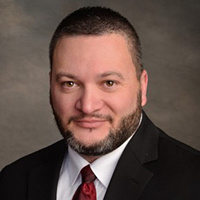Spring Arbor Reorganization Lawyer, Michigan
Sponsored Law Firm
-
 x
x

Click For More Info:
-
Marrs & Terry, PLLC
6553 Jackson Road Ann Arbor, MI 48103» view mapBankruptcy & Debt Personalized, Efficient Counsel
Marrs & Terry, PLLC have been helping individuals face a variety of legal challenges, including bankruptcy, estate planning and administration, and family law.
800-862-7221
Not enough matches for Spring Arbor Reorganization lawyer.
Below are all Spring Arbor Bankruptcy & Debt lawyers.
Jeriamiah Lee Joseph
✓ VERIFIEDDivorce & Family Law, Personal Injury, Accident & Injury, Car Accident, Bankruptcy & Debt
Jeriamiah Joseph is the founding Member of Joseph Law – located at 18625 Centennial Road, Suite A, Marshall, MI 49068. Mr. Joseph is licensed to pra... (more)
Michael Kevin Falahee
Divorce, Contract, Collection, Personal Injury
Status: In Good Standing Licensed: 19 Years
Thomas Patrick Riley
Other, Industry Specialties, Consumer Bankruptcy, Bankruptcy & Debt
Status: In Good Standing
Anne Walker White
Biotechnology, Labor Law, Business, Consumer Bankruptcy
Status: In Good Standing Licensed: 40 Years


 Tricia Terry Ann Arbor, MI
Tricia Terry Ann Arbor, MI AboutExperienced Michigan Lawyer
AboutExperienced Michigan Lawyer Articles
Articles

